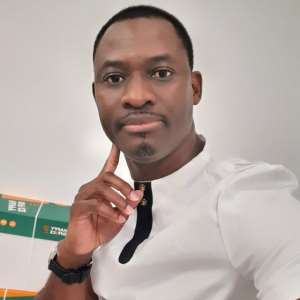
On Saturday, June 28, 2025, during a Constitution Review Committee (CRC) Zoom engagement with the Ghanaian Diaspora, Dr. John-Baptist Naah proposed a bold, forward-looking amendment to Ghana’s presidential election process. Specifically, he called for a revision of Article 63(3) of the 1992 Constitution, replacing the current “50% plus one” rule with an Electoral College model tailored to Ghana’s unique regional, political, and cultural landscape.
Why Now?
After over 30 years of Ghana’s Fourth Republic, it’s clear our democratic journey has made significant strides, but it’s far from perfect. Ethnic loyalties, regional disparities, and unequal political representation still shadow our progress. These aren’t just political quirks; they’re systemic realities that should inform how we choose our head of state.
The current system under Article 63(3) allows a candidate to win the presidency with a simple majority, over 50% of the popular vote. This might sound fair on paper, but in practice, it concentrates power in just a few voter-rich regions. In an increasingly aware and regionally conscious nation, that’s not sustainable. Democracy, to be legitimate, must reflect not just numbers, but national character and inclusion.
Lessons from Elsewhere and from Ourselves
The U.S. uses an electoral college to manage its vast diversity. Nigeria, with its ethnic complexity, has constitutional mandates for regional balance. Ghana may not mirror these countries exactly, but our challenges resonate: tribal voting patterns, uneven development, and the marginalization of less populous areas.
The truth is this: tribal and regional politics exist, whether we like it or not. Pretending otherwise is not only naive — it’s dangerous. Any electoral system that ignores this reality is building on shaky ground.
What’s Wrong with the Current System?
Right now, a presidential candidate can win by sweeping just 3 or 4 out of Ghana’s 16 regions, typically those with the highest voter counts, like Greater Accra or Ashanti. That leaves smaller regions such as North East, Oti, or Bono East feeling sidelined and politically irrelevant.
This creates a ripple effect:
Presidential candidates have little incentive to campaign nationwide. Voters in smaller regions disengage. A sense of exclusion grows, feeding political apathy and regional resentment.
Worse, it runs counter to Article 35(6)(b) of our own Constitution, which calls for fair regional and ethnic representation in national affairs. If we demand inclusiveness in appointments and development, why not in electing the President, too?
The Electoral College Model: A Ghanaian Solution
This is not a copy-paste job from Washington or Abuja. It’s a proposal designed for Ghana, by Ghanaians, based on Ghana’s needs. Here’s a working model to spark national conversation:
Basic Structure:
Each of the 16 regions gets a baseline of 2 electoral votes (regional electors). Additional votes are allocated based on registered voter population, to preserve equity. To win, a presidential candidate must: Secure a majority of electoral college votes, and Win the popular vote in at least 10 regions.
This dual threshold ensures candidates must earn support across the nation, not just from the biggest blocs.
Additional Considerations:
Electoral votes could be cast by MPs, specially appointed electors, or regionally selected representatives. Anti-corruption safeguards would be crucial to protect the integrity of the system. A phased, consultative rollout will be needed to avoid confusion or pushback.
Why This Model Makes Sense for Ghana
Promotes national unity by valuing every region. Encourages nationwide campaigning and inclusive platforms. Reduces ethnic politics and regional polarization. Aligns with the Constitution’s values of fair representation. Prevents dominance by a few populous “vote-bank” regions.
Recommendations to the Constitution Review Committee
Amend Article 63(3) to replace the simple majority rule with an Electoral College system. Launch a National Dialogue involving political parties, academia, civil society, and traditional leaders. Commission a Technical Design Study by 2026 to flesh out the legal and operational framework. Phase in Implementation by 2028, allowing time for public education, legal reforms, and consensus-building.
Conclusion: A Presidency That Belongs to All
Ghana is not just a democracy; it is a tapestry of regions, cultures, and aspirations. If we want our presidential elections to truly reflect that, our electoral system must evolve. The 2025 CRC offers a timely opportunity to fix the structural imbalance of the “50% plus one” rule before it begins to fray the fabric of our national unity.
The proposed Electoral College model isn’t a foreign transplant; it’s a homegrown fix to a homegrown issue. It’s about fairness. It’s about equity. Not only that, but it’s about building a presidency that feels like it belongs to all Ghanaians, not just the loudest or the largest.
I remain available to provide clarifications and further insight. Thank you for considering this proposal. May Ghana continue to grow in wisdom, strength, and unity.
Dr. John-Baptist Naah
A Ghanaian in the Diaspora
Cologne, Germany


